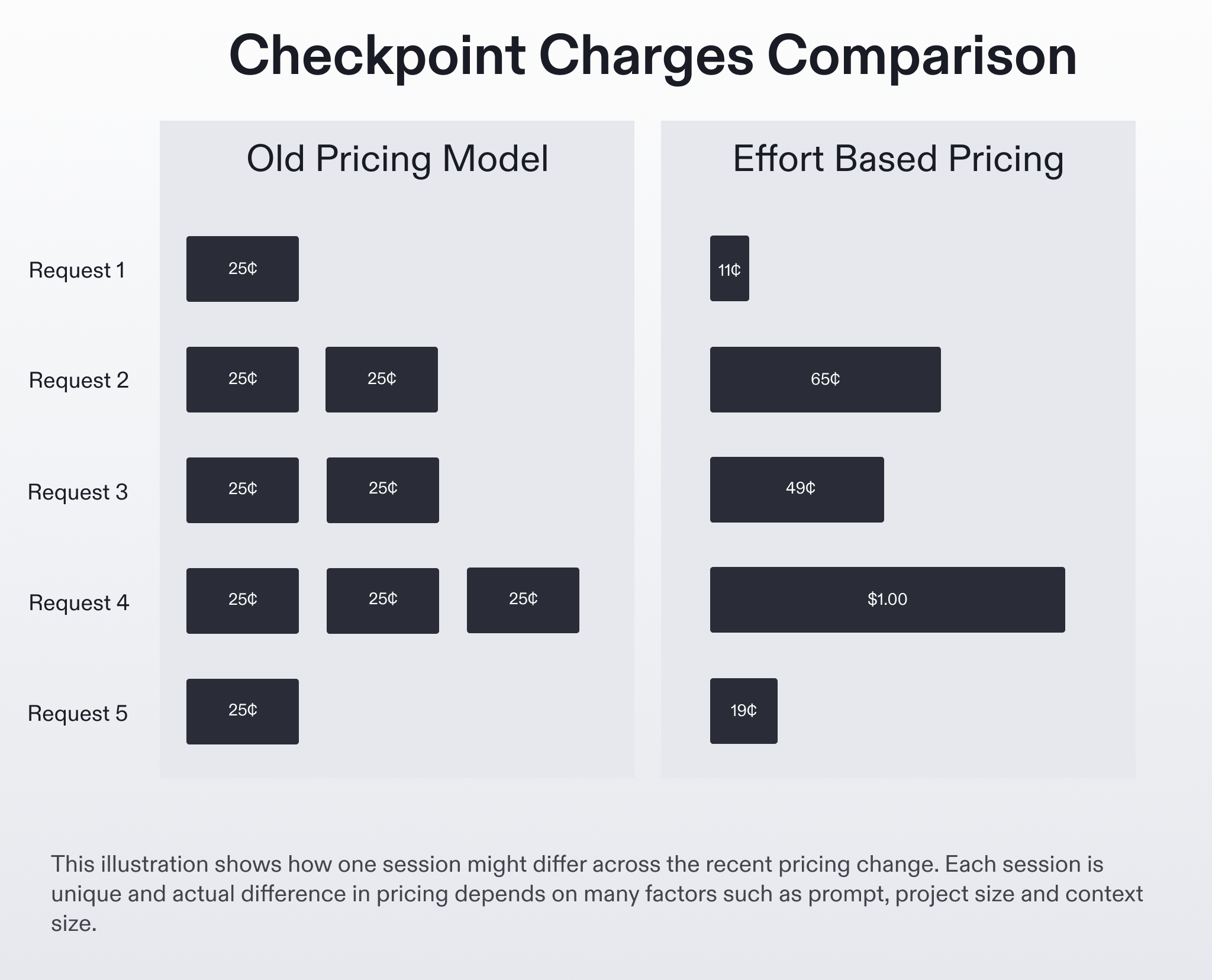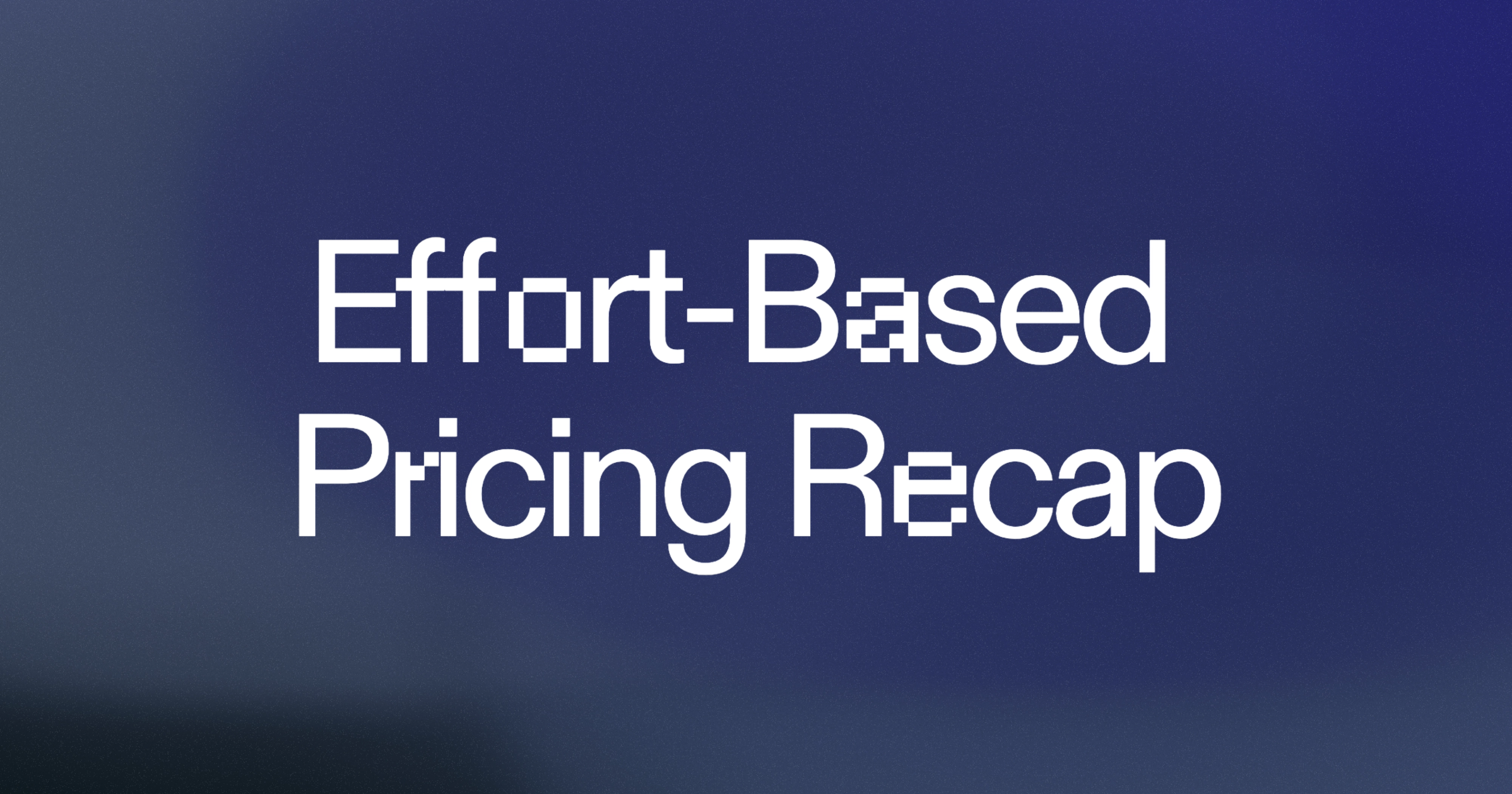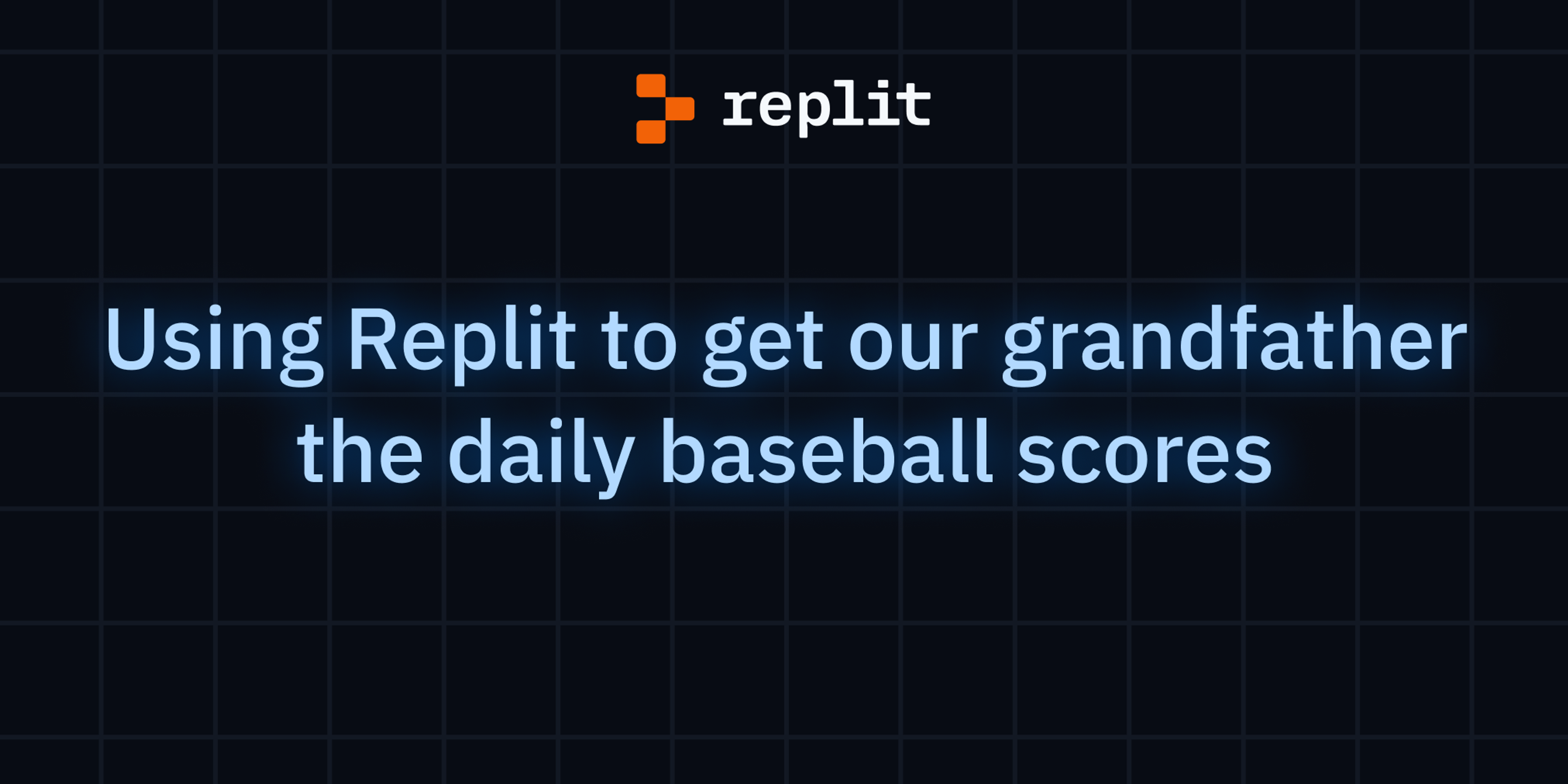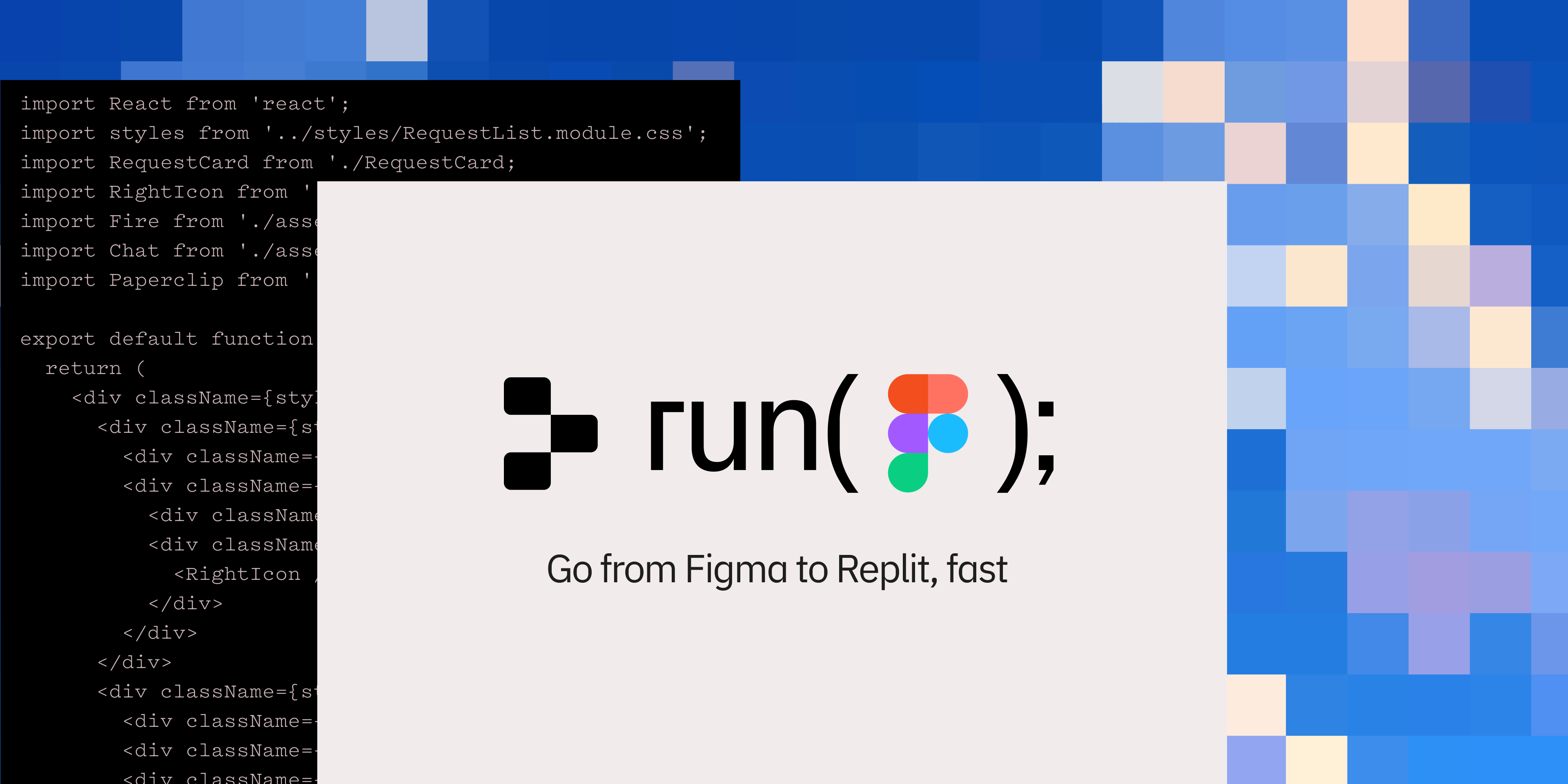On June 18th, we enabled a new pricing feature called Effort-Based Pricing for all newly signed up Replit users. After monitoring usage for two weeks, we began rolling this feature out to the remaining users last week on July 2nd. In this post, we would like to share more about the rationale for the change, what we have observed so far, address some of our users’ concerns, and share how we are continuing to improve pricing.
We are confident that the new Effort-Based pricing is the model that will best serve our users and enable more powerful AI tools to Replit members, however the transition to the new pricing model did not meet our standards for how we like to roll out major changes (we will discuss some examples of areas where we fell short). Therefore, we would like to offer $10 in free Replit credits to all Replit members who used the new pricing model as a way to show that we appreciate your feedback and your patience during this transition. This will automatically be applied to all active accounts that have used the new pricing model. There is nothing that users need to do to claim this credit.
July 11th Incident:
One example of where we fell short in our rollout of the pricing happened on July 11th between the hours of 11:26AM PDT - 5:43PM PDT. During this time, and due to an error in cost calculation, Replit checkpoint charges were being incorrectly computed and were often much larger than they should have been. After 5:43PM the fix was rolled out to production. This impacted approximately 6% of paying users. We have performed a thorough incident analysis, ensured that all charges related to the incident are refunded/credited, and have applied additional guardrails to make sure that this doesn’t happen again.
We apologize for this July 11th incident and we thank our community members for helping us identify this issue. We were able to determine exactly who was impacted, by how much, and will automatically issue refunds or credits to any user that was impacted by this error. There is nothing that these users need to do to initiate the refund. The total cost of all impacted checkpoints will be reimbursed. Impacted users will also receive an email explaining what has happened.
These refunds will be in addition to the additional $10 in credits that we are offering to all active Replit members who have been using the new Effort-Based Pricing.
The pricing that people experienced during this incident was not representative of what people are normally charged under the new Effort-Based Pricing feature. The rest of this article will focus on how Effort-Based Pricing works, how charges are calculated, and how that differs from the previous pricing model. We will also highlight some optimizations we’ve recently made to reduce the Replit costs for all users.
How Agent Works:
When Agent receives a message from users, it uses AI models along with automated testing to build, modify, and test the user’s application. Periodically, Agent will create “snapshots” of the project called checkpoints. Checkpoints allow users to browse the history of the application or roll back / preview previous versions. Since checkpoints represent concrete units of work, we use them as opportunities to bill users for their usage.
At Replit, we’re building a fully automated software developer so you can eventually create any software you can imagine. The first version of Agent (v1) that came out of beta in Dec 2024, could only work for up to a couple of minutes at a time. So it made sense to generate a single checkpoint and bill the user a flat rate of $0.25, which at the time was enough to cover the cost of AI and running the service.
With v2, however, Replit can run autonomously for up to 20 minutes. This was a huge upgrade that meant people could build entire businesses on Replit and automate large swaths of work. In this world, the one-message-one-checkpoint model no longer worked because 20 minutes of work could cost us upwards of $10.
Therefore, we patched the Agent to generate a checkpoint every ninth time that the Agent ran a command behind the scenes. That was a heuristic that “felt right,” but in reality, it rarely aligned with the actual work or value being delivered. It also generated a lot of intermediate, superfluous checkpoints that polluted the project history, making it harder to roll back or preview old changes. So that had to change.
What Has Changed With Effort-Based Pricing?
Previously:
- In general, one request to Agent would result in at least one checkpoint.
- These checkpoints were performed at times that were not meaningful.
- Each checkpoint would cost the user $0.25.
With new Effort-Based Pricing:
- Agent will create at most one checkpoint per request instead of many.
- On average, that checkpoint will represent more work performed by Agent.
- The cost per checkpoint is now determined based on the amount of computing resources consumed.
- Simpler requests may cost as little as $0.06 and more involved requests will usually cost more than $0.25, sometimes resulting in charges of multiple dollars depending on the size of the work.
A few of the most noticeable changes users have observed under Effort-Based Pricing are as follows.
- Users have seen checkpoint charges as low as $.06 where that same request would have cost more under the old pricing model (at least $0.25).
- Users have seen checkpoints costing over $1, and they would have been charged the same amount under the old pricing model.
- Users have seen checkpoints costing over $1, and they would have been charged less under the old pricing model.

What We Have Observed In The Data:
As we rolled out the new pricing, we tracked the median checkpoint price and we observed that it only went up slightly vs the old pricing model. That meant for most users the cost didn’t move all that much. However, we hadn’t appreciated how much it affected power users.
Some increase in median checkpoint price was expected because Effort-Based checkpoints, on average, pack in more work. However, Effort-Based pricing can end up being more expensive over the lifetime of a project, and median statistics do not capture outlier datapoints well. What we have observed is that the total change to project costs depends on the nature of the project size, the types of requests the user tends to make, and the size of the “AI context.” This means that the larger the project and the longer the message thread, the more costly the incremental message becomes (users can mitigate some of this cost by starting new chats, but this needs to be balanced against loss of message thread context).
However, we don’t want this new pricing behavior to place too much of a burden on the platform's most active users. We have already made some improvements on cost efficiency and plan to release more interventions that we’ll discuss later in this post.
User Costs Reflect Real Costs:
With Effort-Based Pricing, the cost to the user and the cost to Replit are aligned and proportional.
- If the user is charged a small amount for their checkpoint, that is because the cost for Replit to process their request was small.
- If the user is charged a significant amount for their checkpoint, that is because the cost for Replit to process their request was large.
The total impact on project spend that a user experiences depends on a combination of project size, chat session size, and overall AI “context” size. Still, in all cases, the charges to the user and the costs to Replit are aligned and proportional.
This alignment isn’t just about fairness—it’s about durability. We’re not chasing short-term growth by subsidizing usage to impress investors. We’re building for the long haul. Replit has been around since 2016, with roots that go back even further. Our mission is steady: empower everyone to build software that makes a difference.
This model ensures we can keep improving the product while staying sustainable. Users who want more power and autonomy can tap into Dynamic Intelligence—things like Extended Thinking and high-powered models for harder problems. And we’re just getting started. The next version of Agent moves us closer to a world where creating software can start with just a single prompt.
Plans based on User Feedback:
The alignment between operational costs and pricing has highlighted areas where we can increase efficiency. We’ve already acted on some of these opportunities and we’ve passed those cost savings to users. For example, shortly after launching the new pricing, we identified a major double-digit percent efficiency win in our AI model usage. We quickly rolled these changes out to all users by the end of July 7th. Because Effort-Based Pricing ties user-facing charges to Replit operational costs, users began to see cost savings immediately.
What is understandably surprising to users is that some projects and long sessions can now result in larger charges, even for relatively small code changes, because all of that project or session information needs to be sent to the underlying AI models. That additional context does improve the quality of the AI output, but sending all that additional information incurs larger charges, even for minor code changes. We will further work to optimize these costs over time without sacrificing performance.
Another surprising behavior is that asking the Agent to answer complex questions within a large project or a lengthy Agent chat session will similarly cost more because of all the context of the conversation, even if not all that context is necessary to answer the question. Even more surprising is that the chat cost is summed in the next checkpoint's charges. This is one area where we can improve the product by providing alternative ways of chatting with the Agent that require smaller AI context sizes than are required for high-quality, complex code changes. We are actively exploring this.
Finally, since Agent is very action-oriented, people have been surprised when it makes changes to their codebase when they only intended to chat with Agent to gain insight into their codebase. We are working on features that will make it easier to distinguish an intent to dialogue from an intent to make changes.
We also have room to improve how we explain the amount of work the newer checkpoints are performing. When users are accustomed to seeing $0.25 charges per checkpoint, it’s harder to interpret a $0.75 checkpoint, even if that $0.75 checkpoint includes the work of three $0.25 checkpoints.
We are not done. We will continue to find AI efficiency improvements, and now with Effort-Based Pricing, every one of those improvements will immediately translate to cost savings to users, just as our July 7th efficiency win did.
We want to thank the Replit community for providing feedback on our pricing changes.
We can’t wait to see what you ship.





